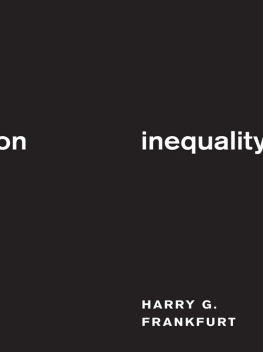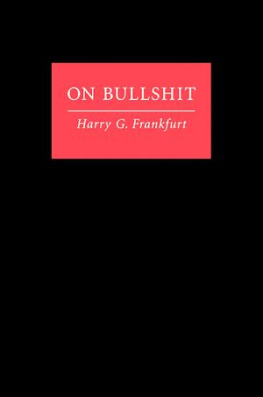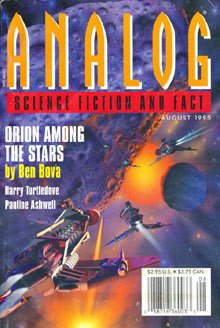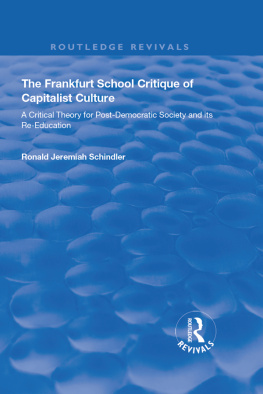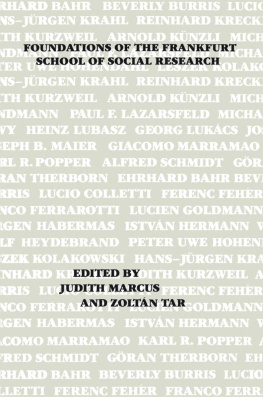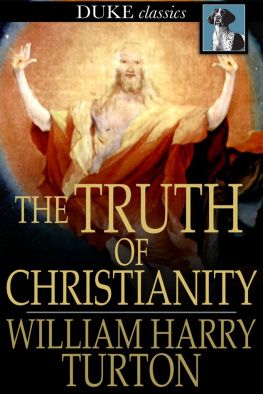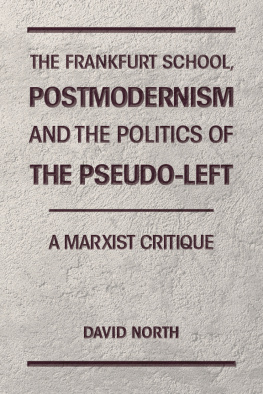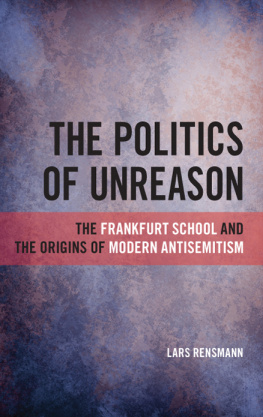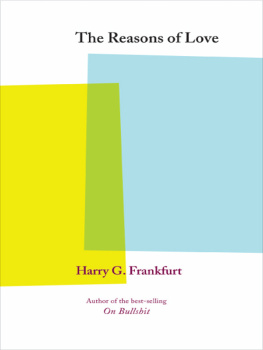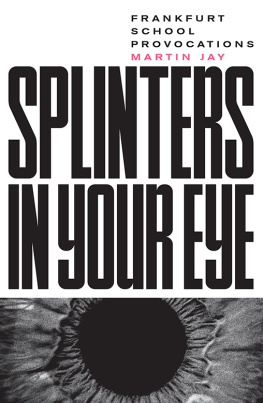Harry G. Frankfurt - On Truth
Here you can read online Harry G. Frankfurt - On Truth full text of the book (entire story) in english for free. Download pdf and epub, get meaning, cover and reviews about this ebook. year: 2006, publisher: Random House, genre: Religion. Description of the work, (preface) as well as reviews are available. Best literature library LitArk.com created for fans of good reading and offers a wide selection of genres:
Romance novel
Science fiction
Adventure
Detective
Science
History
Home and family
Prose
Art
Politics
Computer
Non-fiction
Religion
Business
Children
Humor
Choose a favorite category and find really read worthwhile books. Enjoy immersion in the world of imagination, feel the emotions of the characters or learn something new for yourself, make an fascinating discovery.

- Book:On Truth
- Author:
- Publisher:Random House
- Genre:
- Year:2006
- Rating:3 / 5
- Favourites:Add to favourites
- Your mark:
- 60
- 1
- 2
- 3
- 4
- 5
On Truth: summary, description and annotation
We offer to read an annotation, description, summary or preface (depends on what the author of the book "On Truth" wrote himself). If you haven't found the necessary information about the book — write in the comments, we will try to find it.
Harry G. Frankfurt: author's other books
Who wrote On Truth? Find out the surname, the name of the author of the book and a list of all author's works by series.
On Truth — read online for free the complete book (whole text) full work
Below is the text of the book, divided by pages. System saving the place of the last page read, allows you to conveniently read the book "On Truth" online for free, without having to search again every time where you left off. Put a bookmark, and you can go to the page where you finished reading at any time.
Font size:
Interval:
Bookmark:

CONTENTS
For Joan, again
It was, after all, her idea
INTRODUCTION
N ot very long ago, I published an essay on bullshit, entitled On Bullshit (Princeton University Press, 2005). In that essay, I offered a provisional analysis of the concept of bullshit: that is, I specified the conditions that I considered to be both necessary and sufficient for applying the concept correctly. My claim was that bullshitters, although they represent themselves as being engaged simply in conveying information, are not engaged in that enterprise at all. Instead, and most essentially, they are fakers and phonies who are attempting by what they say to manipulate the opinions and the attitudes of those to whom they speak. What they care about primarily, therefore, is whether what they say is effective in accomplishing this manipulation. Correspondingly, they are more or less indifferent to whether what they say is true or whether it is false.
In that book, I also addressed a number of other issues. I explored the distinction, which is fundamentally important though generally left unexamined, between bullshit and lies. I made a few tentative suggestions concerning how to account for the extraordinary prevalence and persistence of bullshit in our culture. And I argued that bullshitting constitutes a more insidious threat than lying does to the conduct of civilized life.
At the time, that seemed like enough. I realized later, however, that I had paid no attention at all in my book to an issue with which any adequate discussion of bullshit must certainly deal. I had made an important assumption, which I had offhandedly supposed most of my readers would share: viz., being indifferent to truth is an undesirable or even a reprehensible characteristic, and bullshitting is therefore to be avoided and condemned. But I had entirely omitted to provide anything like a careful and convincing explanationindeed, I had omitted any explanation at allof exactly why truth actually is so important to us, or why we should especially care about it.
In other words, I had failed to explain why indifference to truth, which I had claimed to be distinctive of bullshit, is such a bad thing. Of course, most people do recognize, and will more or less readily acknowledge, that truth has considerable importance. On the other hand, few people are prepared to offer much real illumination of just what it is that makes truth so important.
We are all aware that our society perennially sustains enormous infusionssome deliberate, some merely incidentalof bullshit, lies, and other forms of misrepresentation and deceit. It is apparent, however, that this burden has somehow failedat least, so farto cripple our civilization. Some people may perhaps take this complacently to show that truth is not so important after all, and that there is no particularly strong reason for us to care much about it. In my opinion, that would be a deplorable mistake. Accordingly, I propose to consider hereas a sort of sequel to On Bullshit, or as an inquiry to which that work might serve as prolegomenonthe practical and theoretical importance that truth actually enjoys, whether or not we generally act as though we recognize that it does so.
My editor (the inimitable and indispensable George Andreou) has pointed out to me the rather paradoxical circumstance that, while no one has any trouble recognizing that there is plenty of bullshit around, quite a few people remain stubbornly unwilling to acknowledge that there might beeven in principlesuch a thing as truth. In my discussion, however, I shall not even tryat least not by any directly confrontational argument or analysisto settle once and for all the entangled debate between those who accept the reality of a meaningful distinction between being true and being false and those who energetically represent themselves (never mind whether they are correct in doing so, or whether it is even possible that they should be correct) as denying that the distinction is a valid one or that it corresponds to any objective reality. That debate seems unlikely ever to be finally resolved, and it is generally unrewarding.
In any case, even those who profess to deny the validity or the objective reality of the true-false distinction continue to maintain without apparent embarrassment that this denial is a position that they do truly endorse. The statement that they reject the distinction between true and false is, they insist, an unqualifiedly true statement about their beliefs, not a false one. This prima facie incoherence in the articulation of their doctrine makes it uncertain precisely how to construe what it is that they propose to deny. It is also enough to make us wonder just how seriously we need to take their claim that there is no objectively meaningful or worthwhile distinction to be made between what is true and what is false.
I am also going to avoid the forbidding complexities that overhang any conscientious effort to define the notions of truth and falsity. This would likely be another discouraging and unnecessarily distracting task. So I will simply take for granted the more or less universally accepted commonsense ways of understanding these notions. We all know what it means to tell the truth about various things with which we are authoritatively familiarfor example, such things as our names and addresses. We understand with equal clarity, moreover, what it means to give false accounts of such things. We know quite well how to lie about them.
Accordingly, I shall assume that my readers are comfortably at home with these unpretentious and philosophically innocent commonsense understandings of the difference between being true and being false. They may not be able to define the notions with unassailable accuracy and formal precision. I shall take it for granted, however, that they are able to carry on more or less intelligently and confidently with them.
One more thing. My discussion will be concerned exclusively with the value and the importance of truth, and not at all with the value or the importance of our efforts to find truth or of our experience in finding it. Coming to recognize that the evidence for a certain proposition is conclusive, and that there can be no further reasonable question of whether the proposition is true, frequently brings with it a gratified feeling of decisive completion and success, and sometimes the recognition may even be rather thrilling. A rigorous demonstration unequivocally resolves all reasonable uncertainty concerning the propositions truth; hence, naturally, all resistance to accepting the proposition evaporates. This is liberating and refreshing. It frees us from the anxieties and inhibitions of doubt, and it enables us to stop worrying about what to believe. Our minds become more settled, finally relaxed and confident.
Experiences of this sort are more or less familiar to scholars and scientists. They are also known to numerous laymen, who may often enough encounter them in the ordinary conduct of their business. Many people are introduced to them in their high school geometry classes, when they are led to appreciate the impeccable demonstration of some Euclidean theorem, and thus to see clearly and distinctly that the theorem has been conclusively proved.
Despite the relatively widespread enjoyment of these experiences, and regardless of their unmistakable interest and value, I shall not discuss them any further. As I said earlier, my attention will be focused uniquely on the value and the importance to us of truth. I shall not be concerned with the value or the importance of our experience in establishing, or in trying to discover, what is true. My topic is not the process of inquiry, or the occasion of its successful completion, but its target.
Font size:
Interval:
Bookmark:
Similar books «On Truth»
Look at similar books to On Truth. We have selected literature similar in name and meaning in the hope of providing readers with more options to find new, interesting, not yet read works.
Discussion, reviews of the book On Truth and just readers' own opinions. Leave your comments, write what you think about the work, its meaning or the main characters. Specify what exactly you liked and what you didn't like, and why you think so.

